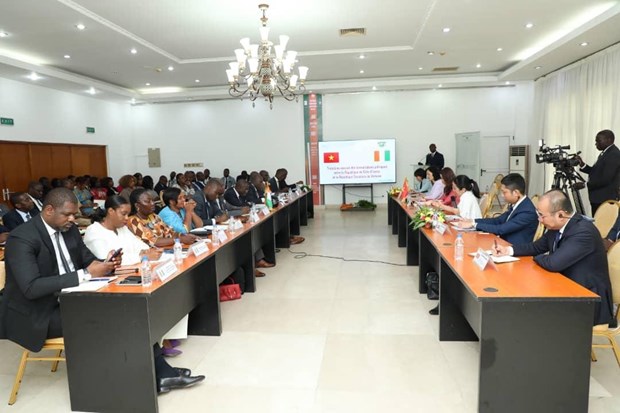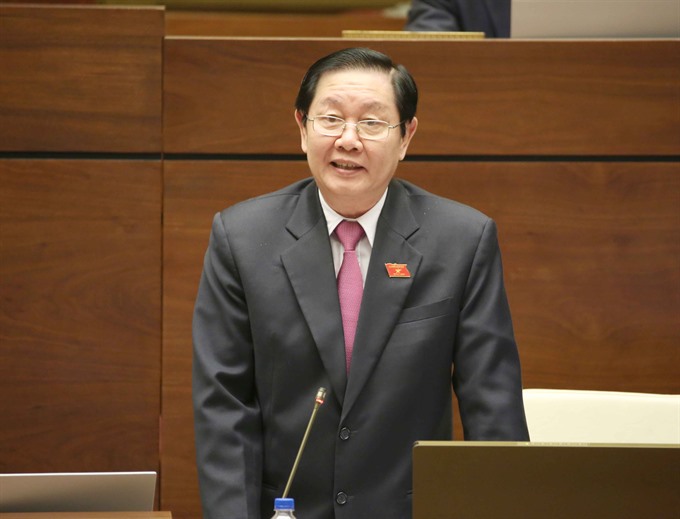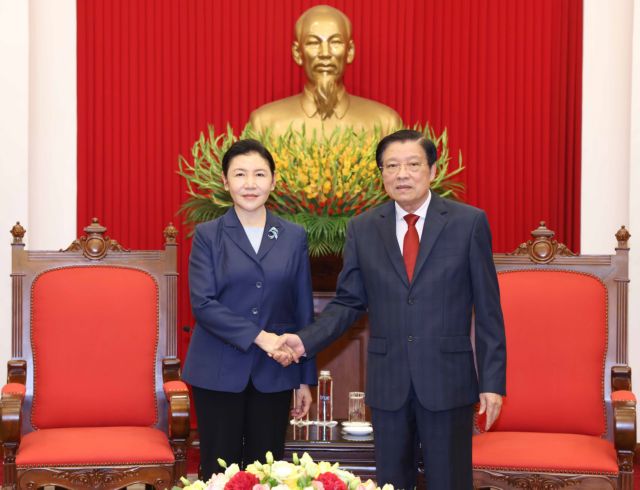 Politics & Laws
Politics & Laws

The appointment of unqualified or unworthy executives to head public organisations heated up yesterday afternoon’s parliamentary sessions as MPs grilled Minister of Home Affairs Lê Vĩnh Tân on staff streamlining and quality of cadres.
 |
| Minister of Home Affairs Lê Vĩnh Tân |
HÀ NỘI — The appointment of unqualified or unworthy executives to head public organisations heated up yesterday afternoon’s parliamentary sessions as MPs grilled Minister of Home Affairs Lê Vĩnh Tân on staff streamlining and quality of cadres.
“How can we enhance the integrity of public officials?” asked Deputy Lưu Bình Nhưỡng of Bến Tre Province, mentioning a deputy minister who’d abused his power to transfer a Highway 51 project to a “backyard” company.
“How many officials like Trịnh Xuân Thanh have been appointed?” asked Deputy Ngô Văn Minh of Quảng Nam Province, referring to a former chairman of the PetroVietnam Construction Corporation believed to caused massive losses by violating State regulations on economic management.
The Ministry of Public Security issued in mid-September a domestic and international arrest warrant for Thanh, who is also a former member of Hậu Giang Province’s Party Committee.
“Should we revise the Law on Officials and Public Servants to strictly deal with officials violating regulations even after they retire?” asked Sóc Trăng Province Deputy Hoàng Thanh Tùng, who wanted to know how an ex-minister would be tackled for alleged power abuse.
Earlier this month, the Party Central Committee Secretariat ordered disciplinary action against former Minister of Industry and Trade Vũ Huy Hoàng on charges of nepotism. Hoàng had appointed his son Vũ Quang Hải as an inspector of the Việt Nam National Tobacco Corporation, and permitted his appointment as Deputy General Director of the Sài Gòn Beer-Alcohol-Beverage Company.
Tân said Hoàng’s case was unprecedented and tough. However, he said, “Violators cannot ‘land safely’ after retirement. They must be punished for their mistakes.”
Although the Law on Officials and Public Servants is yet to have provisions to deal with such cases, the home affairs ministry will issue documents to facilitate punishment of law-breakers who have retired, he said.
Tân will answer questions about the other cases this morning.
Tân said the ministry has inspected nine localities following Government directives and found out that gaps remain in their executive appointment process, which is involved in various levels of authorities.
For example, an inspection of the Department of Labour, Invalids and Social Affairs in Hải Dương Province found that 44 of 46 officials in this agency appointed as managers.
Nationwide, many authorities appoint their relatives instead of talented people, said Deputy Nguyễn Ngọc Phương of Quảng Bình Province.
Deputy Đỗ Đức Hồng Hà of Hà Nội said many civil servants do nothing in the office, displaying a poor sense of discipline, weak ability and limited skills.
Tân said the ministries of Home Affairs and Justice will be resolute in streamlining the organisational structures of ministries themselves, and will work with the Personnel Commission of the Party Central Committee, which oversees personnel matters, to enforce responsibility for executive appointments in the future.
He said the trimming of public employees has been too slow, and the public administration apparatus was cumbersome, affecting wage payments in the context of State Budget limitations.
The basic wage for public sector employees is VNĐ1.2 million (US$53) this year, up 7 per cent over last year. It is expected to rise to just VNĐ1.3 million next year.
“The current basic wage can only meet nearly half the staff’s needs. VNĐ3.3 million a month is a reasonable amount,” he said. — VNS









